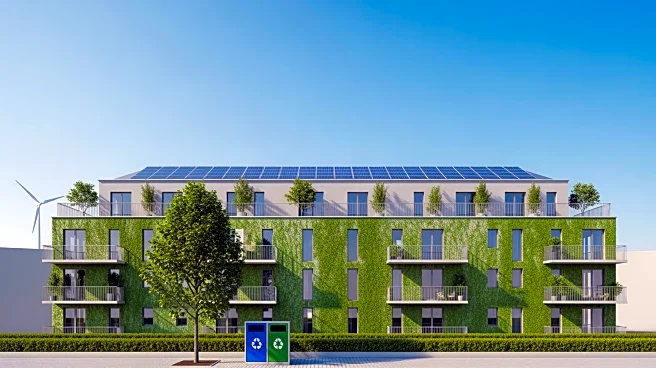What's Happening?
Environmental, Social, and Governance (ESG) factors are increasingly influencing the decisions of multifamily developers and investors. These considerations include environmental impacts such as greenhouse
gas emissions and waste management, social factors like diversity and health, and governance issues such as executive compensation and board management. The integration of ESG criteria is becoming crucial as properties that fail to meet emerging efficiency or resilience standards may quickly lose value. This shift is driven by evolving environmental standards and market preferences, which are prompting developers and investors to incorporate sustainable practices and technologies, such as renewable energy and energy-efficient appliances, into their projects.
Why It's Important?
The growing emphasis on ESG factors reflects a broader trend towards sustainability in the real estate sector. This shift has significant implications for property valuation, insurance costs, and investment strategies. Properties that demonstrate strong environmental performance may benefit from better insurance terms and reduced premiums, while those with poor ESG metrics could face higher costs and limited insurance availability. As climate risks such as severe storms and wildfires increase, insurers are tightening underwriting standards, leading to higher premiums. This environment necessitates that developers and investors not only adopt sustainable practices but also document these efforts to leverage negotiations with insurers and protect property values.
What's Next?
Developers and investors are likely to continue integrating ESG considerations into their projects to mitigate risks and enhance property value. This includes conducting thorough environmental assessments, implementing resilience measures, and securing appropriate insurance coverage. As the frequency and severity of environmental events rise, the real estate industry may see increased demand for properties that meet high sustainability standards. Additionally, ongoing monitoring and transparency in environmental practices will be crucial to maintaining investor confidence and ensuring compliance with evolving regulations.
Beyond the Headlines
The focus on ESG factors in real estate development highlights a broader cultural shift towards sustainability and corporate responsibility. This trend may lead to long-term changes in how properties are designed, built, and managed, with an emphasis on reducing environmental impact and enhancing community well-being. As stakeholders increasingly prioritize ESG criteria, the real estate industry could play a pivotal role in driving sustainable development and addressing climate change challenges.









